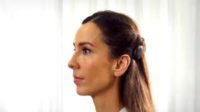Hearing Loss / 08.01.2024
5 Ways Hearing Aids Will Improve Your Life
One step at a time, hearing aids are becoming an almost mandatory part of the superior hearing experience....
One step at a time, hearing aids are becoming an almost mandatory part of the superior hearing experience....
 MedicalResearch.com Interview with:
Dr. Véronique J. C. Kraaijenga MD
Department of Otorhinolaryngology–Head and Neck Surgery
Brain Center Rudolf Magnus, University Medical Center Utrecht, Utrecht, the Netherlands
MedicalResearch.com: What is the background for this study?
Response: During the past two decades, the frequency of hearing loss among young people has increased and going to music concerts, clubs and festivals may part of the reason. Noise-induced hearing loss because of recreational noise exposure is reduced by using earplugs.
Our study evaluated 51 adults who attended an outdoor music festival in Amsterdam, the Netherlands, in September 2015. The study measured music festival visit for 4.5 hours (intervention); temporary hearing loss (outcome).
(more…)
MedicalResearch.com Interview with:
Dr. Véronique J. C. Kraaijenga MD
Department of Otorhinolaryngology–Head and Neck Surgery
Brain Center Rudolf Magnus, University Medical Center Utrecht, Utrecht, the Netherlands
MedicalResearch.com: What is the background for this study?
Response: During the past two decades, the frequency of hearing loss among young people has increased and going to music concerts, clubs and festivals may part of the reason. Noise-induced hearing loss because of recreational noise exposure is reduced by using earplugs.
Our study evaluated 51 adults who attended an outdoor music festival in Amsterdam, the Netherlands, in September 2015. The study measured music festival visit for 4.5 hours (intervention); temporary hearing loss (outcome).
(more…) David G. Loughrey, BA(Hons)
NEIL (Neuro Enhancement for Independent Lives) Programme
Trinity College Institute of Neuroscience, School of Medicine
Trinity College Dublin, Dublin, Ireland
MedicalResearch.com: What is the background for this study?
Response: Age-related hearing loss, a common chronic condition among older adults, has emerged in the literature as a potential modifiable risk factor for dementia. This is of interest as current pharmacological therapies for dementias such as Alzheimer’s disease only offer symptom-modifying effects. Treatment of risk factors such as hearing loss may help delay the onset of dementia and may provide an alternate therapeutic strategy. However, there is variance in the research on hearing loss and cognition with some studies reporting a small or non-significant association. In this meta-analysis, we investigated this association and we only included observational studies that used standard assessments of cognitive function and pure-tone audiometry (the clinical standard).
(more…)
David G. Loughrey, BA(Hons)
NEIL (Neuro Enhancement for Independent Lives) Programme
Trinity College Institute of Neuroscience, School of Medicine
Trinity College Dublin, Dublin, Ireland
MedicalResearch.com: What is the background for this study?
Response: Age-related hearing loss, a common chronic condition among older adults, has emerged in the literature as a potential modifiable risk factor for dementia. This is of interest as current pharmacological therapies for dementias such as Alzheimer’s disease only offer symptom-modifying effects. Treatment of risk factors such as hearing loss may help delay the onset of dementia and may provide an alternate therapeutic strategy. However, there is variance in the research on hearing loss and cognition with some studies reporting a small or non-significant association. In this meta-analysis, we investigated this association and we only included observational studies that used standard assessments of cognitive function and pure-tone audiometry (the clinical standard).
(more…) Jan Janssen, Senior Vice President
Research and Development
Cochlear Limited
MedicalResearch.com: What is the background for this device?
Response: Cochlear implants treat hearing loss by electrical stimulation of the hearing nerve, bypassing the damaged parts of the hearing pathway. Cochlear implants system consist out of an external sound processor that detects and processes the sounds and then sends them to the implant. The implant receives this information and turns it into electrical signals that are delivered to the hearing nerve and from there to the brain.
The Nucleus® 7 Sound Processor is the world’s first and only Made for iPhone cochlear implant sound processor, allowing users to stream sound from their iPhone®, iPad® and iPod touch® directly to their cochlear implant sound processor. It not only enhances the experience of talking on the phone, it also makes features like enjoying music or watching videos, as well as audio apps such as Maps or FaceTime, more easily accessible.
The Nucleus 7 Sound Processor is also the smallest and lightest behind-the-ear sound processor on the market.
(more…)
Jan Janssen, Senior Vice President
Research and Development
Cochlear Limited
MedicalResearch.com: What is the background for this device?
Response: Cochlear implants treat hearing loss by electrical stimulation of the hearing nerve, bypassing the damaged parts of the hearing pathway. Cochlear implants system consist out of an external sound processor that detects and processes the sounds and then sends them to the implant. The implant receives this information and turns it into electrical signals that are delivered to the hearing nerve and from there to the brain.
The Nucleus® 7 Sound Processor is the world’s first and only Made for iPhone cochlear implant sound processor, allowing users to stream sound from their iPhone®, iPad® and iPod touch® directly to their cochlear implant sound processor. It not only enhances the experience of talking on the phone, it also makes features like enjoying music or watching videos, as well as audio apps such as Maps or FaceTime, more easily accessible.
The Nucleus 7 Sound Processor is also the smallest and lightest behind-the-ear sound processor on the market.
(more…) MedicalResearch.com Interview with:
Wenqi Gan, MD, PhD
Assistant Professor
Department of Preventive Medicine and Environmental Health
University of Kentucky College of Public Health
Lexington, KY 40536
Medical Research: What is the background for this study?
Dr. Wenqi Gan: In epidemiologic studies on health effects of noise exposure, community noise is typically assessed using noise prediction models, occupational noise is assessed using self-reports or historical records. These methods are able to estimate community noise exposure in residential areas and occupational noise exposure in the workplace; however, these methods are not able to accurately reflect actual personal noise exposure in the home and workplace. The lack of personal noise exposure information is a major limitation of previous studies, which could cause underestimations of the true health effects of noise exposure. Bilateral high-frequency hearing loss, an objective indicator for long-term exposure to loud noise, may be used to investigate health effects of noise exposure.
Medical Research: What are the main findings?
Dr. Wenqi Gan: This study includes 5223 people aged 20-69 years who participated in the US National Health and Nutrition Examination Survey 1999-2004. Compared with people with normal high-frequency hearing, people with bilateral high-frequency hearing loss were approximately two times more likely to have coronary heart disease. This association was particularly striking for people who were chronically exposed to loud noise in the workplace or leisure time. For example, for currently employed workers with occupational noise exposure history, the possibility of having coronary heart disease increased more than four times. This study confirms that chronic exposure to loud noise is associated with increased risk of coronary heart disease.
(more…)
MedicalResearch.com Interview with:
Wenqi Gan, MD, PhD
Assistant Professor
Department of Preventive Medicine and Environmental Health
University of Kentucky College of Public Health
Lexington, KY 40536
Medical Research: What is the background for this study?
Dr. Wenqi Gan: In epidemiologic studies on health effects of noise exposure, community noise is typically assessed using noise prediction models, occupational noise is assessed using self-reports or historical records. These methods are able to estimate community noise exposure in residential areas and occupational noise exposure in the workplace; however, these methods are not able to accurately reflect actual personal noise exposure in the home and workplace. The lack of personal noise exposure information is a major limitation of previous studies, which could cause underestimations of the true health effects of noise exposure. Bilateral high-frequency hearing loss, an objective indicator for long-term exposure to loud noise, may be used to investigate health effects of noise exposure.
Medical Research: What are the main findings?
Dr. Wenqi Gan: This study includes 5223 people aged 20-69 years who participated in the US National Health and Nutrition Examination Survey 1999-2004. Compared with people with normal high-frequency hearing, people with bilateral high-frequency hearing loss were approximately two times more likely to have coronary heart disease. This association was particularly striking for people who were chronically exposed to loud noise in the workplace or leisure time. For example, for currently employed workers with occupational noise exposure history, the possibility of having coronary heart disease increased more than four times. This study confirms that chronic exposure to loud noise is associated with increased risk of coronary heart disease.
(more…)